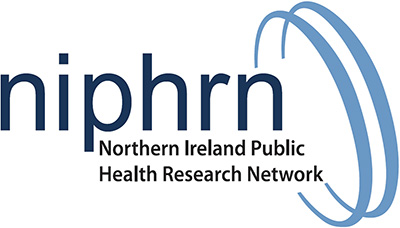Rules of engagement
NI Public Health Research Network: The Networker’s guide
The NIPHRN exists to help all those interested in public health intervention research add value by collaborating to design and conduct high quality evaluations of public health programmes and to attract external income from major research funders to ensure they are carried out.
We can only accomplish this if we work together. This online network will serve our collective purpose only if it proves useful to as many as possible, and if it gets us exchanging ideas or sharing knowledge and experience that proves useful for the development of robust protocols.
The Network comprises academics, practitioners, policy makers and Third Sector professionals – and members from each constituency will have a unique contribution to make. But the Network will achieve its aims if all groups make their contribution. The NIPHRN online resources (www.niphrn.org.uk ) the online network will serve the following broad aims:
User Access and communication
Network members will register and receive regular updates and alerts of network activities. The Network will maintain a register of members and, those wishing to register can obtain the form from here. In addition members have the option of becoming members of a Research Development Group (RDG).
One of the most important functions of the online Network will be the distribution and sharing of types of information. Among the most important will be the title or topic and deadlines of emerging commissioned research calls from major funding bodies.
It is hard to predict the level of interest in such calls, but our initial policy will be to distribute these to all Network members unless individuals wish to unsubscribe to this service.
We expect that interest in responding to such calls could come from academic or non-academic members, or that ideas for evaluation research could emerge de novo, unprompted by any specific call.
The Network coordinator will act as the initial focal point for preliminary expressions of interest (in protocol development), so after a specific flyer has been distributed, those seeking to collaborate in responding to a specific research call should register their interest and their need for collaborators in an email to her within 10 days of the flyer.
If there is an adequate response (i.e. a minimum of two or more), she will:
- establish a time limited online Discussion Forum where potential collaborators can exchange initial ideas
- where appropriate, Doodle the Discussion Forum Participants to find a suitable date and time for an online meeting
If after the initial online-meeting, there is still sufficient interest, momentum and enthusiasm for the development of a research protocol, a Research Development Group will be formed.
Research Development Groups
Research Development Groups will be time limited and will exist for only as long it takes for the development of the research protocol and the submission of a grant for peer review or for the conduct of preliminary pilot studies. Each will nominate a leader, who will chair protocol development discussions conducted either online or face-to-face as appropriate. The RDG leader will be supported by the Network coordinator in setting up and minuting such meetings but much of the work of generating ideas and refining methods can also be supported through real time an online
RDG Discussion Forum
The RDG can create its own collaborative document space as a repository for minutes, protocol drafts and useful references.
Another possible route to the creation of an RDG will arise from research questions posed by practitioners or policy makers. These can be sent to the Coordinator {using the template to be found at http://www.thehealthwell.info/niphrn/groups/main who will circulate the question across the Network to ascertain the level of expertise, interest and priority that could be collectively marshalled to address that question and to see whether the issue would fit with any existing commissioned research calls from major funders. The outcome may then be that:
- a. there is sufficient interest and expertise in the Network (and / or potential collaborators outside NI) to justify an RDG;
- b. there is insufficient expertise or priority to justify an RDG or
- c. the Network members can identify how the issue has already been addressed in other research and an RDG is not warranted.
It is vital that policy makers and practitioners raise possible research questions!
It is also important that they appreciate the purpose of the Network and RDGs. Their purpose is not to provide a research literature retrieval or systematic review service - there are many resources available elsewhere for that.
Interest Groups
Based on the areas of research declared by members when they registered, several interest groups will be created. Network members can be members of as many interest groups as they choose, but the primary purpose of these interest groups will be to share knowledge and experience. In most cases this will be through the sharing of pertinent research publications, relevant research recommendations from funders, or professional bodies (such as NICE).
An important metric of how the Network is performing is related to how useful research knowledge is exchanged and so we encourage all members to make maximum use of the Interest Groups both in offering useful resources to share and in keeping up to date on the Group’s activity.
